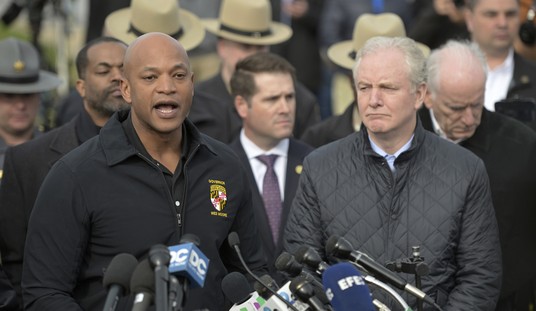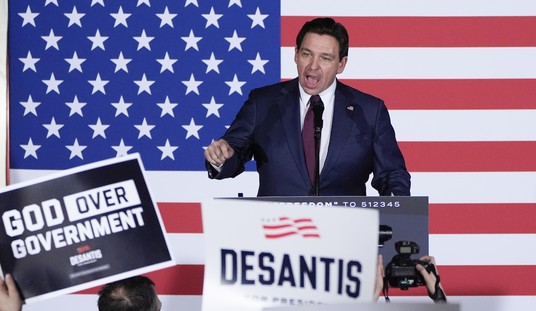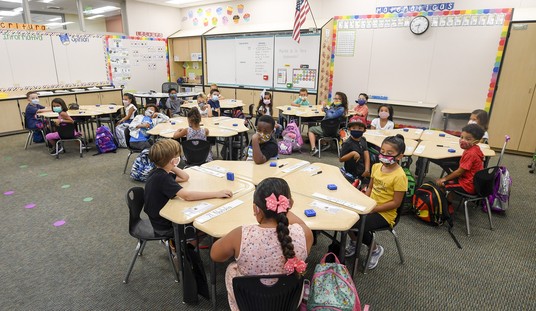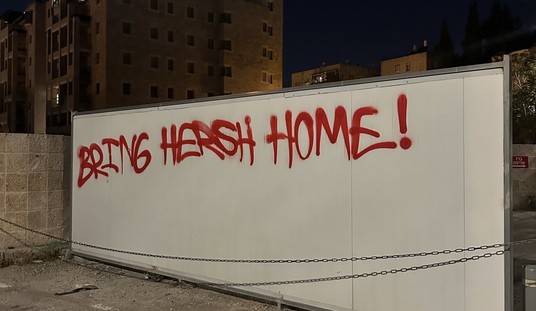As Brit Hume acidly observed, those sanctions applied this morning didn’t do much to deter Vladimir Putin. Just a few hours after both the US and EU imposed sanctions on several Russian and Ukrainian political figures over the occupation of Crimea, Putin issued a declaration recognizing the province’s independence:
Russian President Vladimir Putin formally recognized Crimea as an independent state Monday, defying new U.S. and European sanctions imposed on Russian and Ukrainian officials, including some of his top aides, in response to Moscow’s moves to take over the region.
A statement posted Monday evening on the Kremlin Web site said Putin signed an order recognizing Crimea’s independence, effective immediately. Crimeans voted overwhelmingly Sunday to secede from Ukraine, a first step toward what pro-Russian leaders in the autonomous region hope will become accession to the Russian Federation.
“Given the declaration of will by the Crimean people in a nationwide referendum held on March 16, 2014, the Russian Federation is to recognize the Republic of Crimea as a sovereign and independent state, whose city of Sevastopol has a special status,” the Kremlin statement said. Sevastopol, Crimea’s main port, hosts the principal base of Russia’s Black Sea fleet. The reference to it as a city with a special status means that Russia considers it a separate administrative unit.
The Post’s reporters add a cautious note:
The recognition of independence does not automatically mean that Russia will annex the peninsula, although it could be a step in that direction, analysts said. Russia also recognized the independence of Abkhazia and South Ossetia, which broke away from the republic of Georgia in 2008, but never absorbed them as a part of the Russian Federation although it supports them financially.
That’s true, but it’s probably not a completely analogous situation, either. The Crimean peninsula has considerable strategic value to the Russian military, which isn’t really all that true of the breakaway Georgia provinces. Plus, annexing those two provinces would reignite the Georgia conflict all over again, while the Ukraine situation is about as bad as it’s going to get.
Assuming, of course, that Russia doesn’t cross over the eastern border of Ukraine next. And that is a very large assumption, given the levels of unrest in those Russophile areas:
With reports of Russian military amassing on the country’s western border with Ukraine, fears that the Kremlin could move into the east have grown. Vladimir Putin, the Russian president, reserved the right to deploy throughout the country in war powers he sought from Russian lawmakers late last month. And early Friday, the Russian foreign ministry issued a harsh statement and flipped Thursday night’s events on their head, claiming that the fatal attack — the first in this city — had been initiated by “right-wing groups” against a peaceful pro-Russia side. The statement concluded with a warning: “Russia is aware of its responsibility for the lives of compatriots and fellow citizens in Ukraine and reserves the right to take people under its protection.”
As in much of Ukraine’s east, there are close ties to Russia here — in language, in culture, in business and in extended family. The fear is that Russia will use the same pretext to send in troops — that of protecting the locals said to self-identify with it — as it did in invading Crimea.
The fears extend beyond Russia and Ukraine. A senior diplomat based in the region for a NATO power said he believed Russia could stir tensions or send troops into eastern Ukraine if the crisis continued much longer. “It’s not a chess game — it’s more like a game of chicken,” the diplomat said. “Both sides are trying to pressure each other into stepping back.”
So far, Ukrainian officials in the eastern part of the country remain optimistic, despite having government building in Donetsk seized by pro-Russian demonstrators. Newly-appointed governor Serhiy Taruta doesn’t think that a Russian intervention would be very popular in the area, even though people in his region tend to prefer Russian ties to those with the West:
Angelina Kariakina, Euronews: “What is currently happening in the Donets Basin region? How strong is the public desire for a referendum or even for joining Russia?”
Serhiy Taruta, Governor of Donetsk region: “That is rhetoric that is being used to destabilise things here. I understand that scenario was made up for Crimea. The strongest part of Crimea’s scenario was ‘we must vote on rejoining Russia’. But this is not something the Donets Basin needs. People here do want more autonomy, they want power decentralised. The Party of Regions and President Yanukovych gained lots of support exactly because they promised decentralisation. He promised lots of other things but unfortunately didn’t deliver. People here wish to make their prosperity with their own hands. That is obvious, and, I believe, right. But we should act within the law. The law says that holding a referendum is decided at state level.”
euronews: “Do you believe that Russia could intervene in eastern and southern Ukraine?”
Taruta: “I don’t believe in such a scenario. I believe in common sense. This is not Crimea. More than nine out of ten local people realise that any intervention is really dangerous and will destabilise life in the region. It will lead to a long-term conflict. I believe the Russian side realises this as well. I also believe that suggesting scenarios of this sort is a kind of psychological attack on people, to provoke them. I don’t see a threat, but the information I have tells me we can protect our region.”
Let’s hope Taruta is correct, because so far the West isn’t convincing Putin to slow down, let alone stop.








Join the conversation as a VIP Member